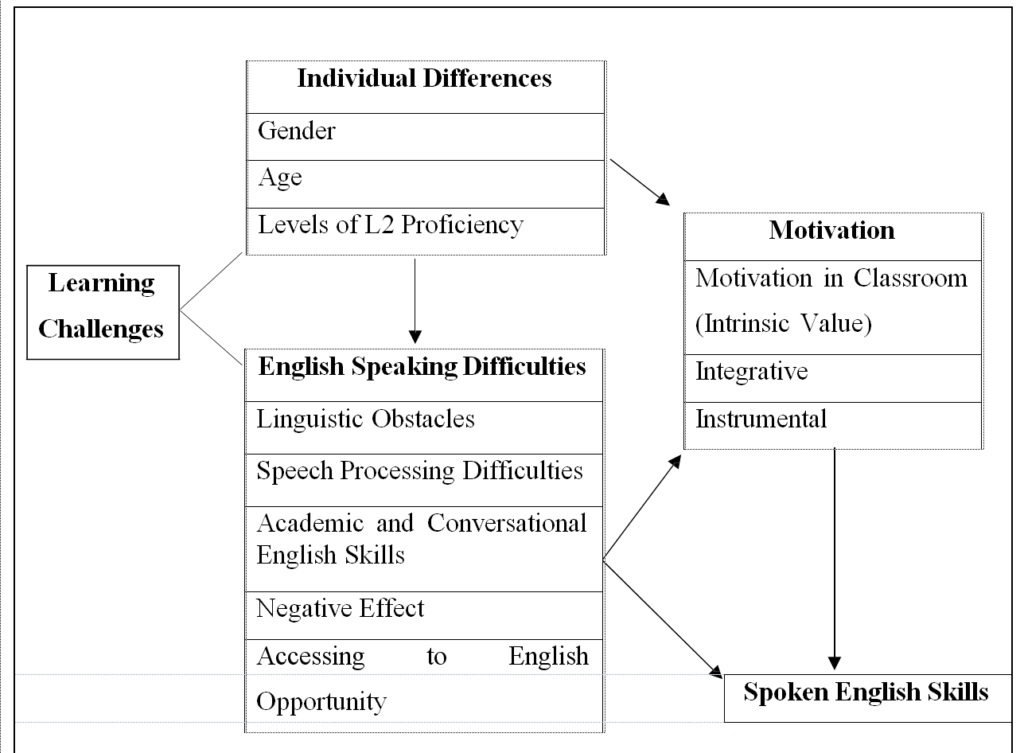The study is concerning with two main variables towards spoken English skills among undergraduate students. First of all, learning challenges cover two main sub variables individual differences (gender, age and levels of L2 proficiency) and English speaking difficulties (Linguistic obstacles, Speech processing difficulties, Academic and conversational English skills, Negative effect and Accessing to English opportunity). The second main variable is motivation which comprises three sub variables – motivation in classroom (intrinsic value), integrative and instrumental. In summary, the study is to determine the relationship between learning challenges and motivation towards spoken English skills among undergraduate students.

Summary
It is important to cater for the diverse needs of students and to acknowledge intellectual, cognitive and cultural differences, taking on board this diversity when planning for teaching and learning. Hence, this chapter describes the individual differences in ESL/EFL and English speaking difficulties as challenges which learners possess and they need to sharpen their difficulties and assimilate themselves to the learning environment. It also reviews the learning motivation theories as they are extremely important for the language acquisition/learning following by the five hypotheses which introduced by Krashen, CLT and the motivational theories are taken into account as a theoretical framework, for they help the teaching and learning process to be effective and they keep learners motivating towards their study.


